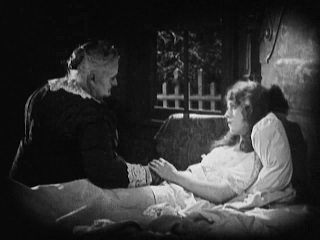by Will Ross
---
 After four years at Universal cranking out dozens of shorts and even more features, Jack Ford was fed up with his employers (and his weekly salary of $300) and signed a long-term contract at another small studio called Fox Film. His salary was immediately doubled, his insane (though typical for the time) rate of production was slowed, and over the next three decades Ford would direct 50 films for the soon-to-be-powerhouse studio, including many of the masterpieces that would establish him as one of the world’s greatest auteurs.
After four years at Universal cranking out dozens of shorts and even more features, Jack Ford was fed up with his employers (and his weekly salary of $300) and signed a long-term contract at another small studio called Fox Film. His salary was immediately doubled, his insane (though typical for the time) rate of production was slowed, and over the next three decades Ford would direct 50 films for the soon-to-be-powerhouse studio, including many of the masterpieces that would establish him as one of the world’s greatest auteurs.Admittedly, his debut for the studio, the serio-comic Just Pals, is a far cry from mastery, or even a really appealing whole. But there is some sense while watching it that perhaps Ford’s career turning point also marked an artistic one. And while that may only be because the glut of lost films renders any estimation of his work at Universal incomplete (though much of his early Fox films were lost too), or because this film is so much better preserved than any Ford film to date except maybe Bucking Broadway (courtesy of the astounding Ford at Fox DVD box set), it’s now clear that young Jack is well and truly on his way to the greatness of old John.
More than anything else, that has to do with his ever-greater tonal ambitions. Like Bucking Broadway, Just Pals shows Ford working in a comedy mode, but this time the broadness and rowdiness of gags has more spontaneity than the stagey mugging of his earlier film.
Nonetheless, these gags are still hamstrung by unimpressive performances and a wayward script. The very episodic plot details the exploits of Bim (Buck Jones), a young layabout bum in a small town whose carefree laziness is seen by the townsfolk with an equal mixture of indignation and affection. Bim befriends a young runaway boy, Bill (Georgie Stone), who quickly looks up to him as a model of anti-social behaviour. But at both his own initiative and the behest of attractive schoolteacher Mary Bruce, Bim develops into a caregiver, bathing the boy, sending him to school, and protecting him from bullies.
The problematic waywardness of the script doesn’t come from its episodic nature, but from its enormous shifts in tone. After a lighthearted opening reel, the film begins to flip between melodramatic events like a train accident and suicide attempt, and its moments of levity play against its dramatic plot not as a Fordian intermingling of comedy and tragedy, but as off-putting juxtaposition. Worse, as its plot develops, the film glosses over moments of preposterous deus ex machinas (Bim is freed from the noose without hesitation because Bill shows up and insists with no substantiation that the real culprit is elsewhere.)
The unconvincing performances only exacerbate the artificial ring to the film, especially the overly mannered leading turn by Buck Jones. Given the fairly consistent work Ford did with Harry Carey, Ford must have found working with a new cast frustrating, and perhaps it was films like Just Pals and performances like Jones’s that inspired the director’s famous stock company just as much as his lengthy and affable collaboration with Carey.
But as I said, there are signs of inbound greatness, particularly in the first 15 of its 50 minutes. In this stretch Just Pals adopts freewheeling mood with effective doses of pathos as Bim realizes that he must adopt a more responsible lifestyle for Bill’s sake. Though it is a meager achievement, the first recognizable instance of John Ford successfully marshalling an emotional tenor merits remark.
As always, Ford's most instantly recognizable trait is his ever-developing storytelling eye. Take the somewhat obvious but still attractive lighting vignette of a sickly Mary as she realizes Bim’s newfound selflessness.
Even more impressive is the following shot-reverse pair, showing a judgmental group of socialites and the indifferent response of Bim and Bill. In the first, Ford flattens the composition, filling the background with a house wall and arranging the subjects in a straight line.
Ford contrasts this with a far more dynamic shot that emphasizes the comparative freeness of the layabouts, placing a long corridor of light before them. The roughhousing kids in the middleground complete the shot’s air of joyous, devil-may-care abandon.




3 comments:
Test
Nice post you sharing form google.
little late to this party, but awesome review, love the breakdown of the scenes between the anvil chorus and Bim and Bill
Post a Comment